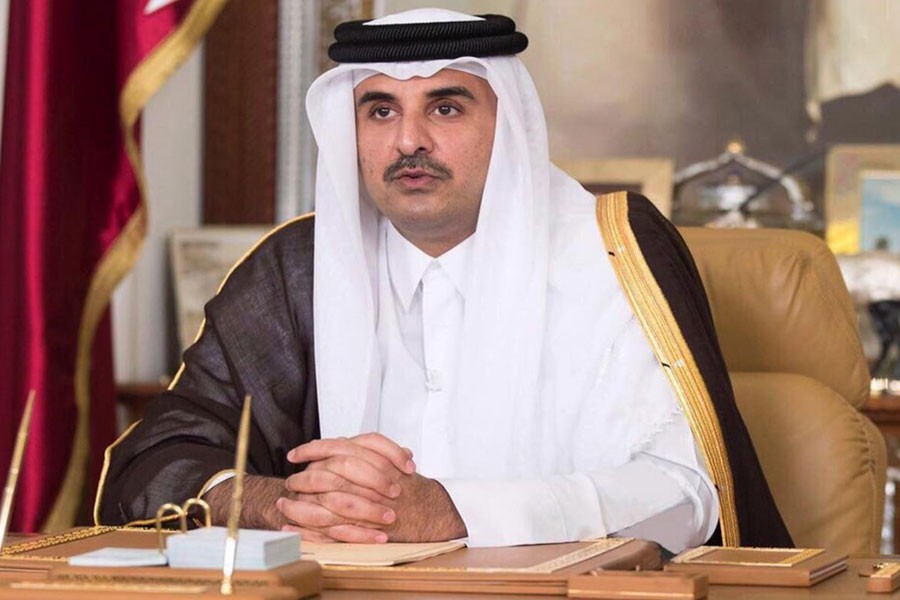Qatar’s emir has warned against any military confrontation over the ongoing diplomatic dispute between his country and four other Arab nations, saying it would only plunge the region into chaos.
Sheikh Tamim bin Hamad Al Thani said U.S. President Donald Trump has offered to host a meeting between Qatar and its opponents — Bahrain, Egypt, Saudi Arabia and the United Arab Emirates — to end the crisis between the American allies.
Speaking to the American television network CBS’s “60 Minutes” news program, Sheikh Tamim said so far, however, there’s been no response from the boycotting nations.
“It was supposed to be very soon, this meeting,” he said.
The threat of a military confrontation between the countries loomed in the initial days following the start of boycott on June 5. Arabic language media in the boycotting nations suggested the need for a “Peninsula Shield” operation, which is the military arm of the Gulf Cooperation Council, though government officials downplayed the idea at the time. Saudi and UAE forces attached to Peninsula Shield previously deployed into Bahrain to put down its 2011 Arab Spring protests.
When meeting in Washington with Trump in September, Kuwaiti emir Sheikh Sabah Al Ahmad Al Sabah said that mediation by the American president helped avoid any violence.
“Thank God, now, what is important is that we have stopped any military action,” said Sheikh Sabah, who himself has been trying to mediate the dispute.
In the “60 Minutes” interview, which will air Sunday night in the U.S., Sheikh Tamim acknowledged the alleged military threat.
“I’m fearful that if anything happens, if any military act happens, this region will be in chaos,” he said.
His comments drew immediate criticism early Sunday from Emirati Minister of State for International Affairs Anwar Gargash.
“To go to the Western media and attack Saudi Arabia and the United Arab Emirates at this point is desperate,” Gargash wrote on Twitter. Qatar “should accept its isolation without sniveling and do what it must.”
The four countries boycotting Qatar allege the natural gas-rich nation funds extremists, and are opposed to its support for Islamist opposition groups and ties to Iran, with which it shares a massive gas field. Doha long has denied funding extremists.


